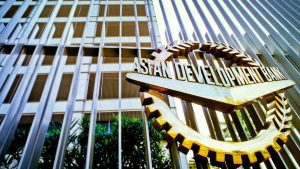CHINA’s trading partners need to prepare for the pent-up demand that has built up when Beijing decides to reopen the economy, the results of which could include additional inflationary pressures, making further monetary tightening necessary, a Citigroup economist said.
“In essence, China’s dynamic Zero-COVID and periodic lockdowns, in a way, are a benign contributor to the global inflation problem, and the reason why I say that is by suppressing demand in China in a year of so many supply shocks, imagine if China reopened dramatically, we could have an even worse inflationary problem,” according to Johanna D. Chua, chief Asia-Pacific economist of Citigroup, speaking at the Asian Development Bank’s (ADB) Post-COVID Outlook for Developing Asia webinar.
“We are hoping that China’s reopening is not going to be reflationary enough to make the monetary policy tradeoff for global central banks to even be worse,” she added. “But, of course, going into next year (when) we’re going into a recession, we hope China can go in the opposite direction and start reopening.”
As of July, China had taken in $798.66 million worth of goods from the Philippines, making it the country’s third-largest export market. It was the biggest source of imports, valued at $2.43 billion.
Krishna Srinivasan, Asia-Pacific head of the International Monetary Fund, said the stringent lockdowns in China seriously hurt economic activity in the second quarter, resulting in a decline in its manufacturing sector “unseen since early 2020” as mobility collapsed.
While inflation in Asia is expected to peak this year, it may be sticky as most readings are coming from high levels.
According to Ms. Chua, the pace of deceleration will depend on global demand, and the rate China reopens.
“Despite a lot of concerted effort of global central banks to accelerate or front-load some of the rate tightening, the reality is that growth is probably going to slow down faster or earlier, while inflation coming securely back to its target path may take a little bit longer,” Ms. Chua said.
“The reason why we think stagflation is transitory is we’re expecting that since a number of central banks are going to have to go above neutral or keep rates on hold for a lot longer, the hope is that by next year we’re going to be on a path towards hitting the inflation target by 2024,” she added.
The Philippine consumer price index rose to 6.3% year on year in August, easing from the four-year high of 6.4% a month earlier. It was the fifth straight month that inflation exceeded the Bangko Sentral ng Pilipinas’ (BSP) 2-4% target band this year.
The BSP has increased its benchmark interest rates by 225 basis points since May in response to the rise in prices.
The economy also grew less than expected in the second quarter of this year at 7.4%, lower than 8.2% in the previous quarter. It was the slowest growth in three quarters.
Meanwhile, the webinar participants rejected suggestions that deglobalization has started to reverse globalization. They did, however, acknowledge it as a looming threat.
“Even before the pandemic and the (Russia-Ukraine) war, there was a lot of angst against globalization. It’s clear that globalization has led to increased income across the world… notably in Asia,” Mr. Srinivasan said.
“But I think where more emphasis would have been placed is on redistribution in terms of winners and losers. So, public policy should be enough to compensate the losers.”
Mr. Srinivasan also added that significant economic losses for the world, particularly in Asia, are inevitable if deglobalization is allowed to continue, noting the restrictions targeting energy and high technology as a result of the Russia-Ukraine conflict.
Ms. Chua added that data on the intensity of goods traded globally would disagree with the deglobalization narrative, going by the evidence of recent developments such as the Regional Comprehensive Economic Partnership (RCEP) agreement.
“We know that many poor countries can gain opportunities to specialize in production in different parts of the value chain when trade is facilitated,” said Albert Park, chief economist of the ADB. “We hope that the RCEP agreement can help facilitate that going forward.”
Earlier this year, the Philippine Senate failed to ratify RCEP, a free trade agreement involving Australia, China, Japan, South Korea, New Zealand, and Southeast Asia. — Diego Gabriel C. Robles
